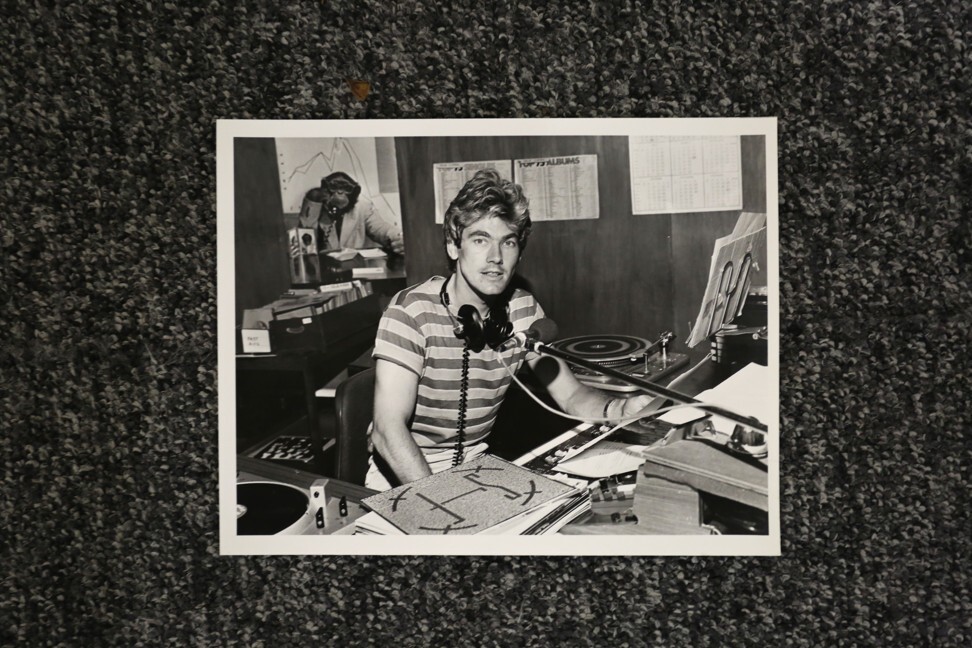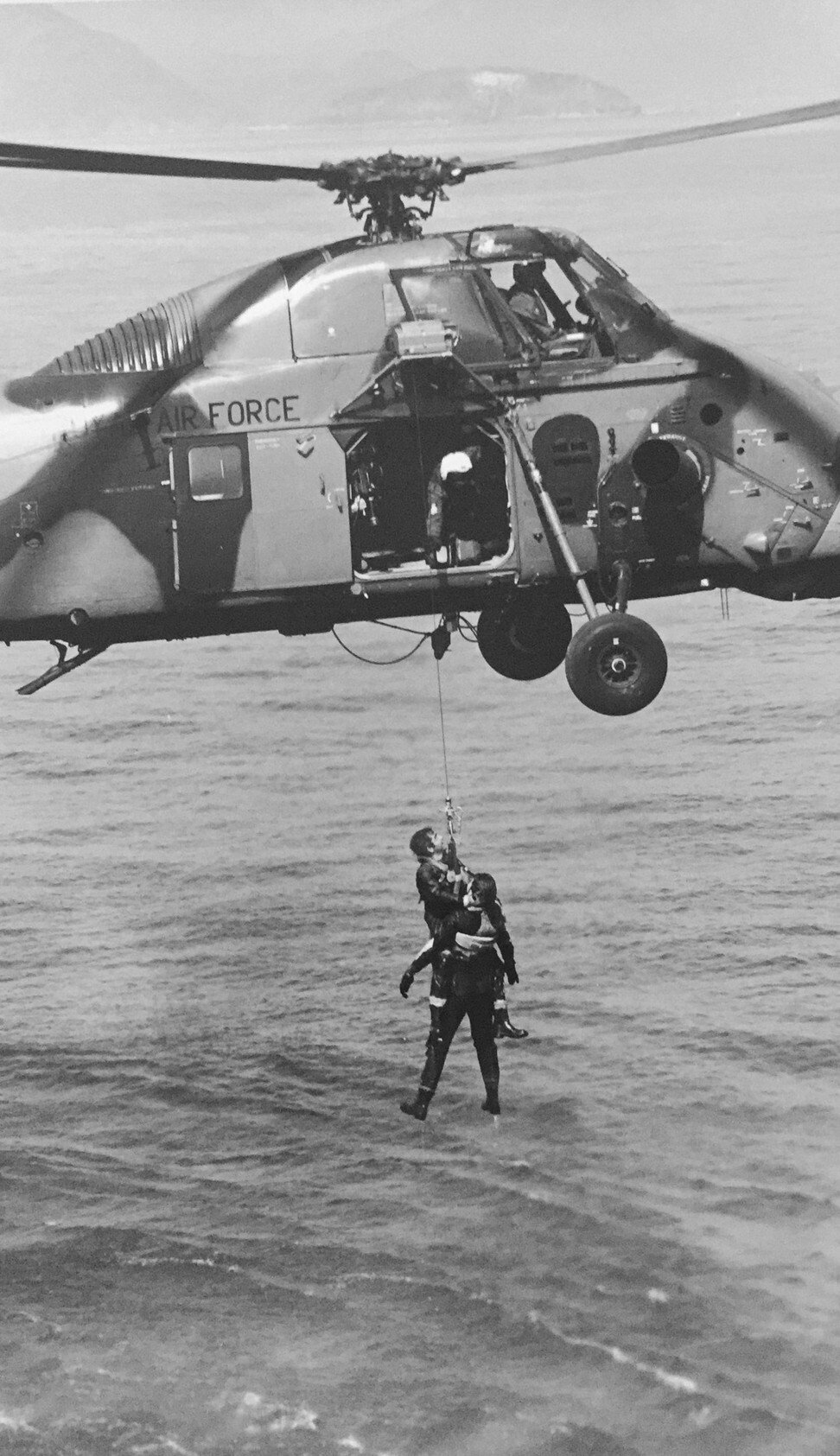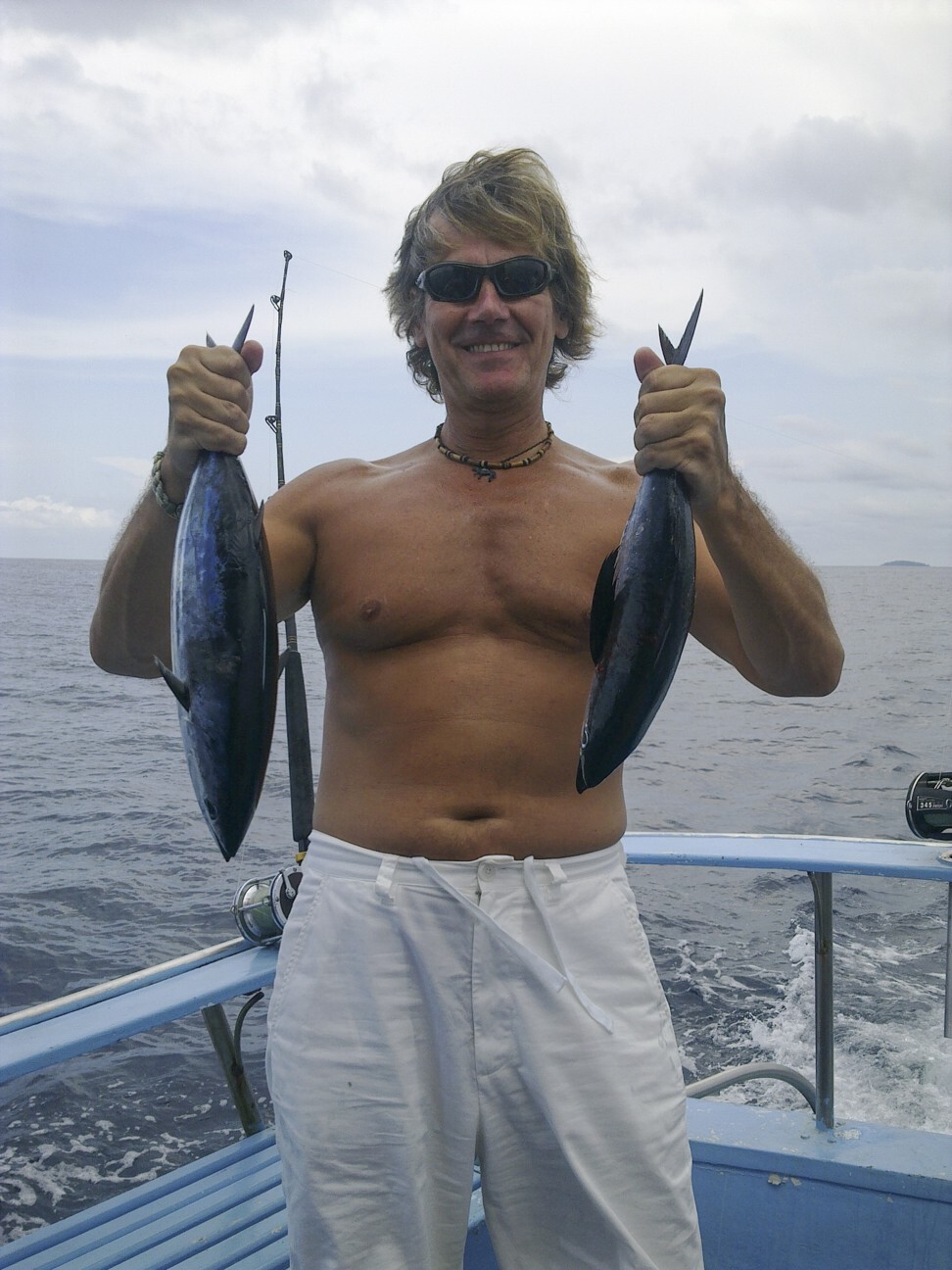
How John Culkin became the voice of Hong Kong’s English-language news
- John Culkin remembers reading the news before the days of the autocue, and the many perils of presenting live
- From being dropped into the South China Sea to reading public service announcements, his career has been far from boring
Love letters: My mother, Jean, met my father, Jack, just as he was going to war as a junior in the Royal Air Force. It was literally one night at a dance hall and then they wrote letters to each other. After the war they got married straight away.
I was born in Sunderland, in the UK, in 1951. Because my father was in the military he got out of the north of England and was able to travel with my mum. When I was seven years old they went to Germany on a tour of duty and I had to stay with my grandmother in Sunderland.
Gone fishing: My grandfather was the tugboat captain of the Roker, built in 1904. It had two paddle wheels at the side. We used to go out into the North Sea. He would get up at four in the morning and I remember following him down the street: he’d be in a suit, smoking away on his Capstan cigarettes. We would get on his boat and sit on the wheels while we waited and we’d catch fish for the crew members for breakfast and drink tea with condensed milk.
Teenage newsreader: In the late 1960s, my parents and I came to Hong Kong. We lived in Ho Man Tin and had a fantastic apartment with the military. My older sister was a typist for China Light & Power. She hated the flying cockroaches and returned to England. I loved Hong Kong.

In September 1969, a trainee teacher got me an interview at Rediffusion Television (RTV, the forerunner of ATV) – she knew I had an interest in TV and radio. Within five minutes, I was hired as a reporter and I started learning the ropes the following week, aged 18. In the newsroom, all the newsreaders were army captains. They would read in a terribly English accent – it was very colonial.
I had been there a year when a newsreader didn’t turn up for work and I was told to give it a go. After a few minutes I settled into it – and I loved it. Reading news on television, there was no autocue – that was years away – so they taught me a technique where you were reading two lines ahead in your mind.
It takes a lot of concentration – you were shattered after a half-hour bulletin. Things went wrong all the time: sets would literally fall down. I had one cameraman on a live news show who fell asleep – the camera was going up, and I could see I was going down in my monitor, so I got off my seat and gradually stood up and carried on presenting.
This Hong Kong: I used to work at different times for all the English-language stations in Broadcast Drive, moving between them and reading their evening bulletins. It was as if there was just one person reading the news. In the early days, I also worked at Commercial Radio.
After I’d been there for five years, RTV gave me a programme. I look back now and it was awful. It was called This Hong Kong, a 10-minute slot every Sunday about things going on around Hong Kong. For example, the Royal Air Force dropped me in the South China Sea and then did a search and air-sea rescue and we filmed it from another helicopter. I did window cleaning for the “highest” building – I think it was the Connaught Centre (in Central); we had the George Formby song at the end of it, When I’m cleaning windows. I was scared stiff.
The show ran for about three years in the late 1970s. I would do the script, the editing, it was so badly done. But it became popular, people writing in – “What’s he going to do next, this idiot?” I remember being towed behind a boat paragliding. It went straight into the water and I was attached, I couldn’t breathe. I only just made it out. RIP John Culkin.

Backup for Cliff: In the 70s, the big stars would pass through on their way to Japan and would stop over for a night to see Hong Kong. Some of them also performed. I interviewed the Four Tops, The Temptations, Shirley MacLaine – she was fantastic – Frank Ifield, he was a yodeller, all for RTV.
For Commercial Radio, we would interview these stars outside at the venue with a Uher recorder. Cassette recorders were only just coming in. The Uher was reel to reel, very good sound quality but you had to carry it around with you and it weighed a tonne. I used it to interview the Bee Gees one time.
Cliff Richard and Olivia Newton-John came in 1972. They performed at the Lee Theatre. Richard was the most boring guy I’ve ever interviewed. He wanted to concentrate on his religion, not that I’m blasting that, but people wanted to hear him sing. So we concentrated on his backup girl at that time, which was Newton-John. She was a brand new singer to the scene, no one had ever heard of her.
Beauty queen: I did a show for ATV with the weather presenter Julie Mullins, from 1980 to 83. It was supposed to be about Hong Kong, Thru the Looking Glass, but I was friends with David Pettigrew, who ran Westminster Travel, and so we would just fly off to places.

My work in commercials started in the early 80s. In 1981, I met Flora, she was a runner-up in Miss Hong Kong that year and I was at the height of my TV career and was invited to all these events. She was opening a department store in Tsim Sha Tsui and had massive posters everywhere. I thought, “I must meet her.” She cut the ribbon and we started talking.
We have two fantastic kids – Justin and Emma. I started doing APIs (Announcements in the Public Interest) towards the end of the 80s – I warned how to wear seat belts, and to wear light clothing to deter mosquitoes. I was the voice of the government for 15 years. And from 1989 until 1996 I was also a TV newsreader at TVB.
I’m the luckiest guy in the world to have done what I’ve done, with no formal education as a journalist, as a broadcaster. I taught myself, and I don’t think I could have done that anywhere else in the world.
